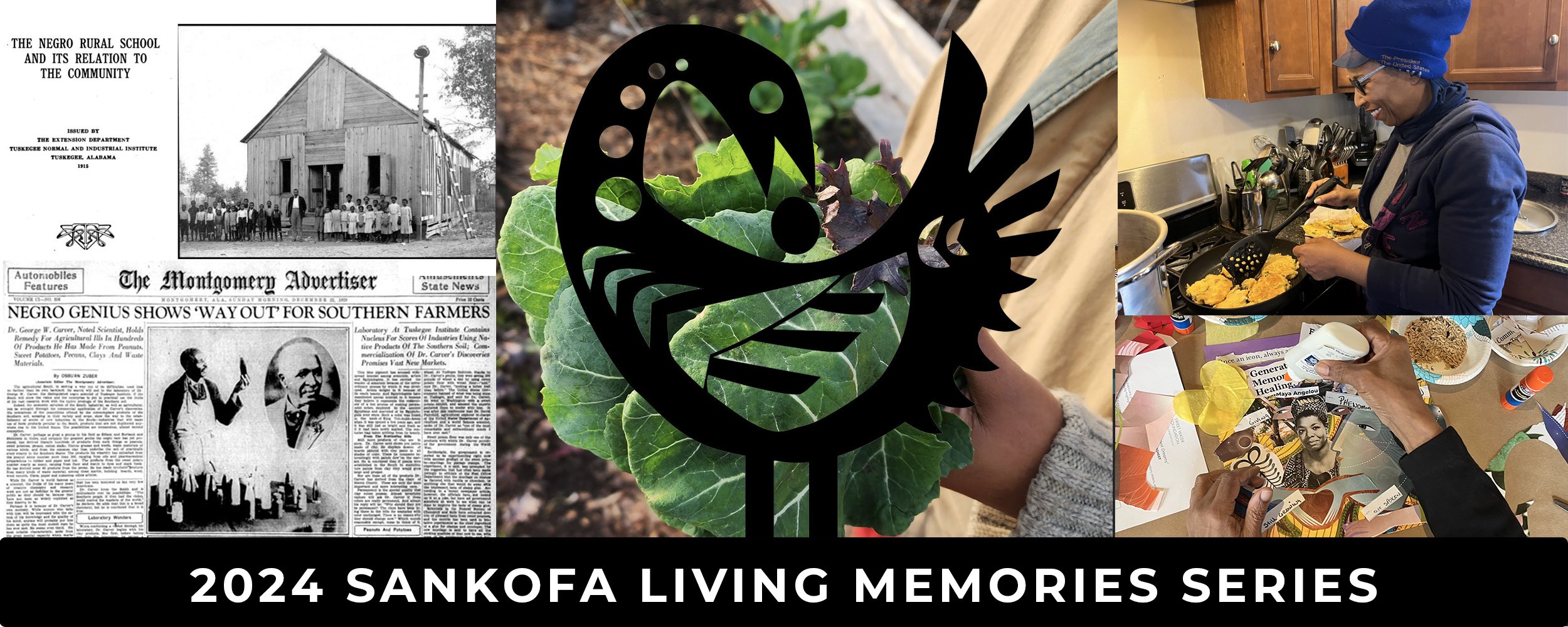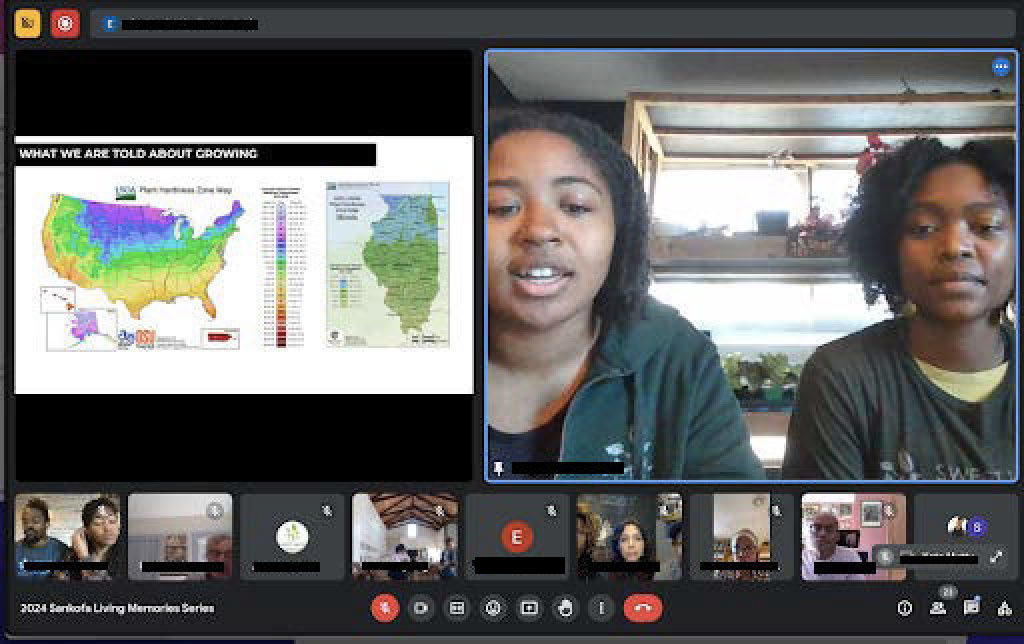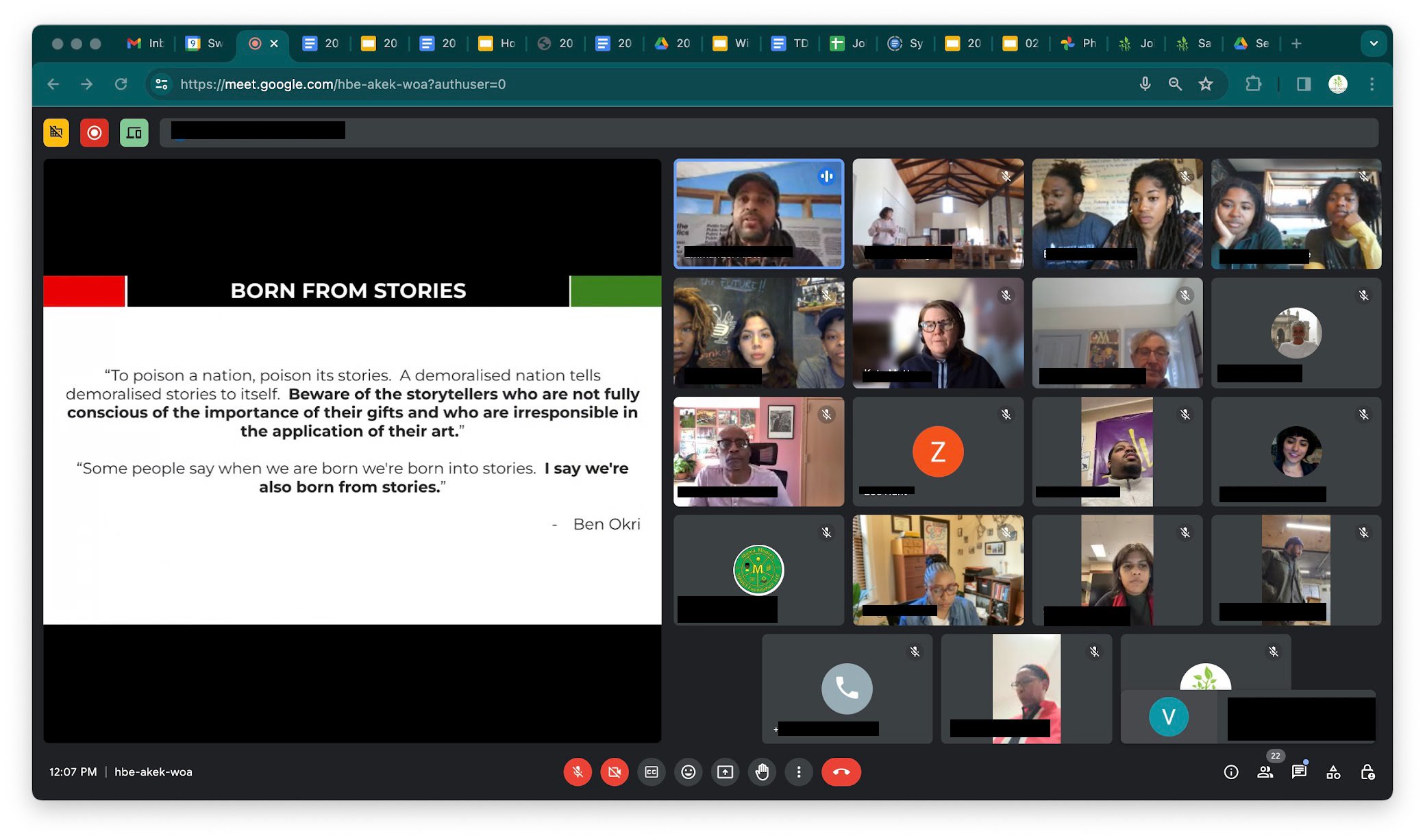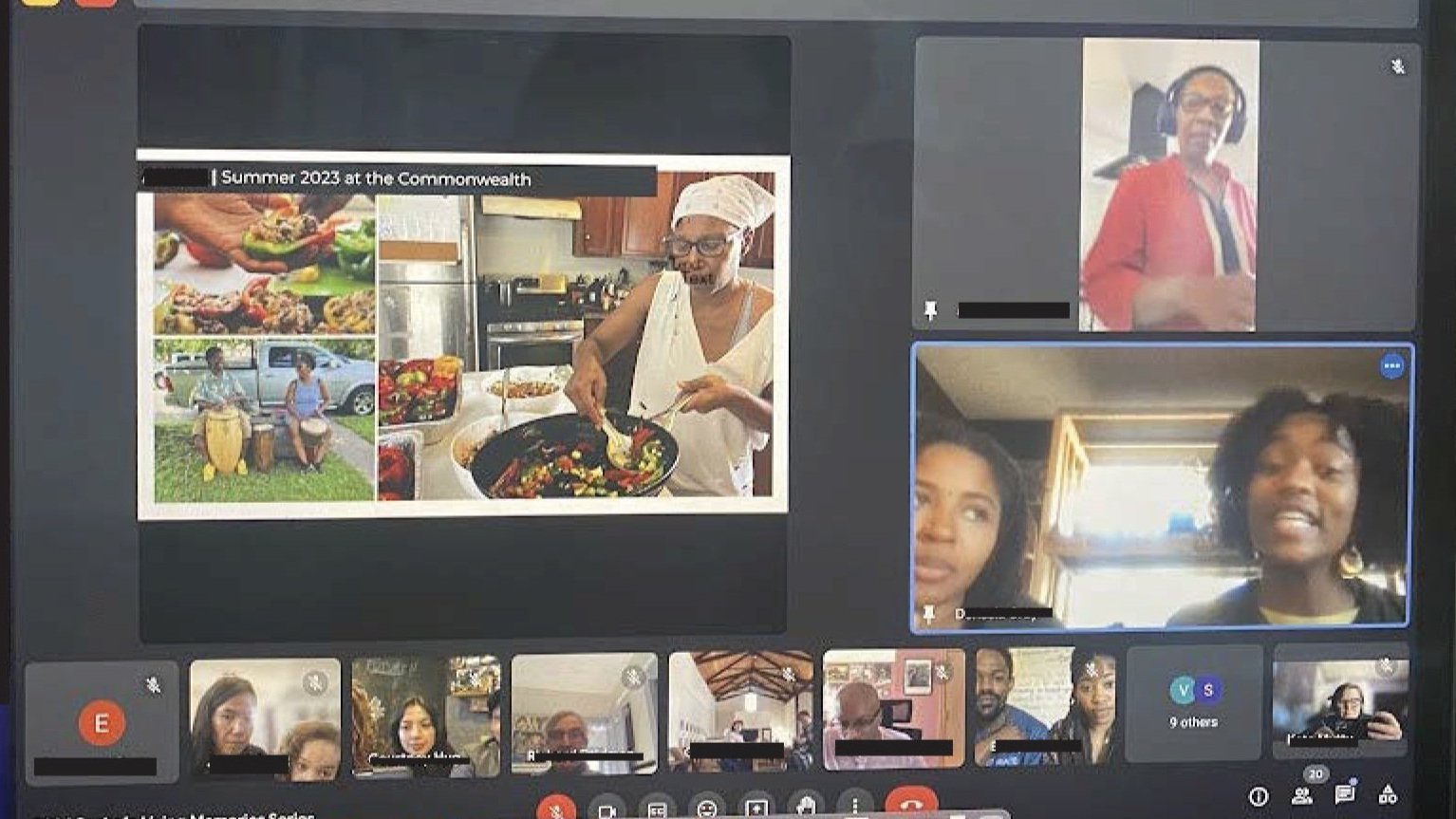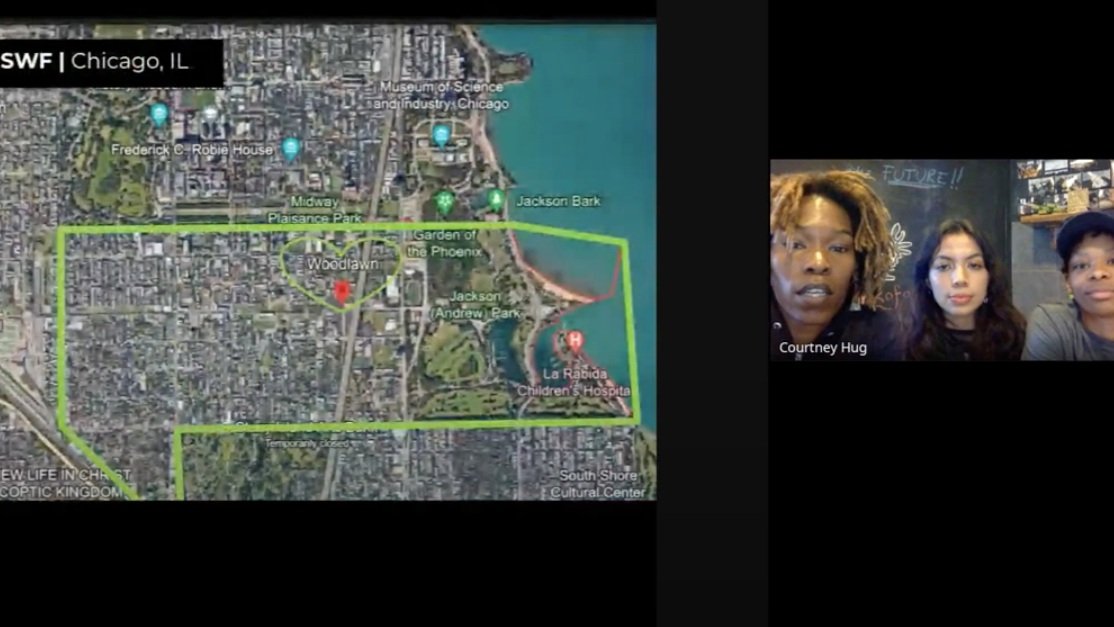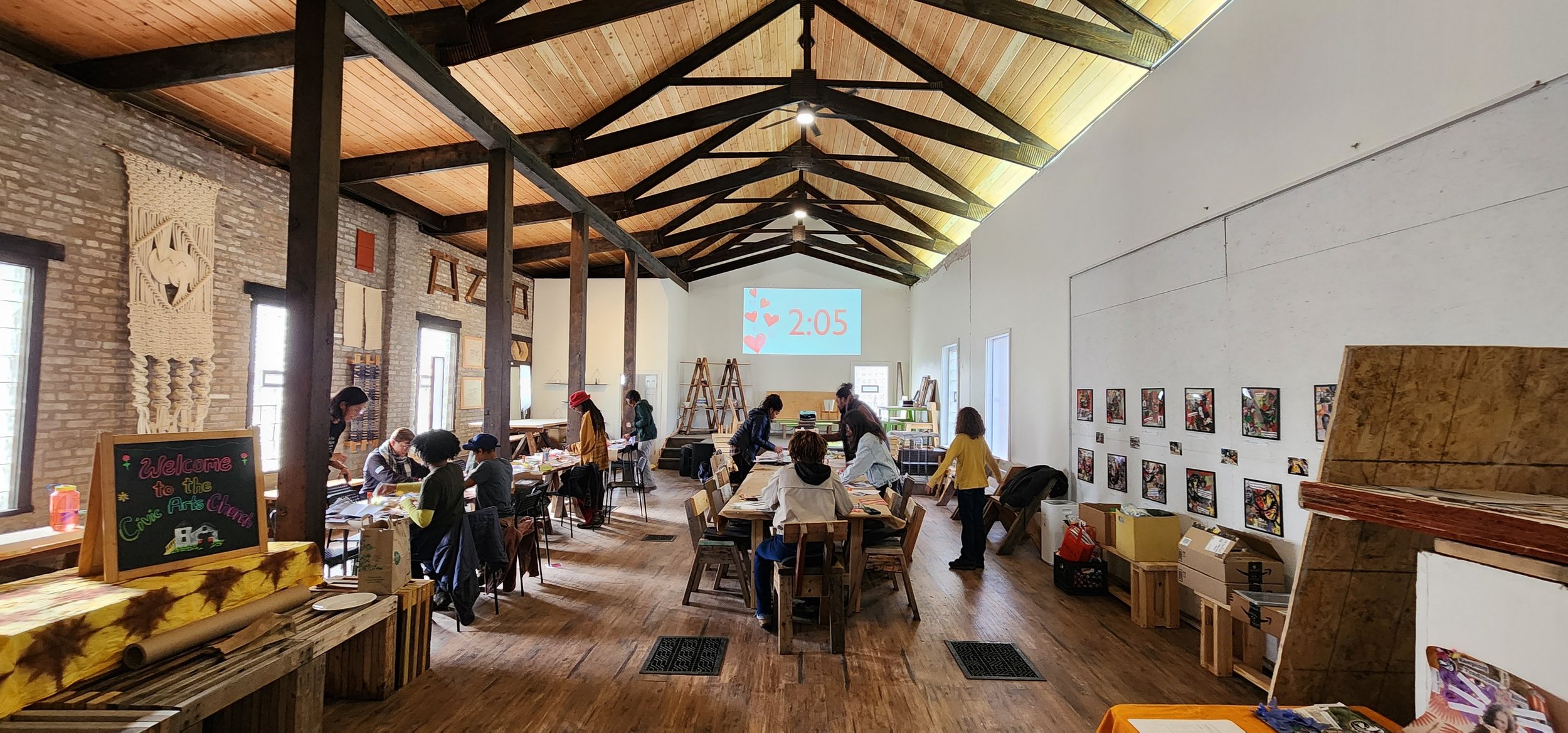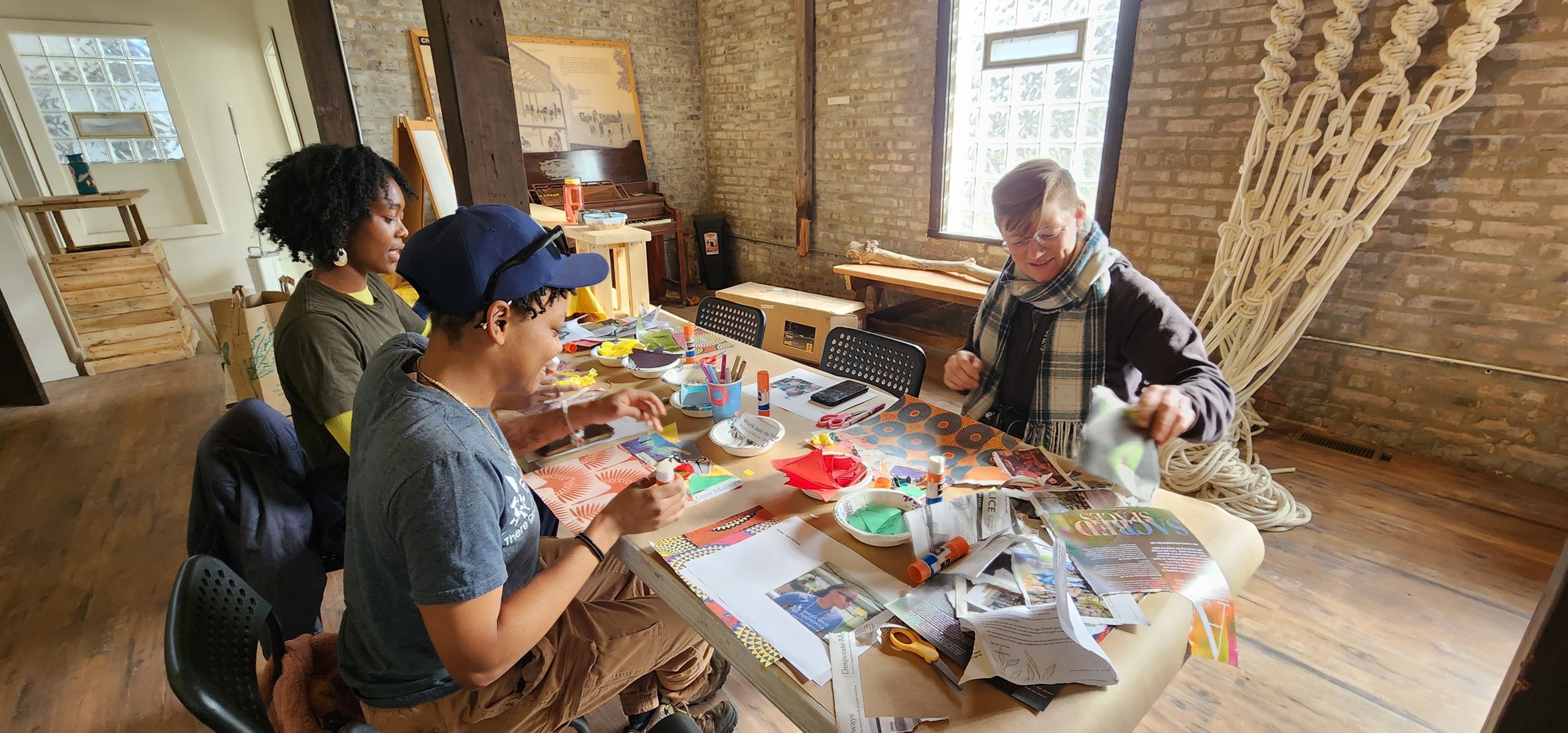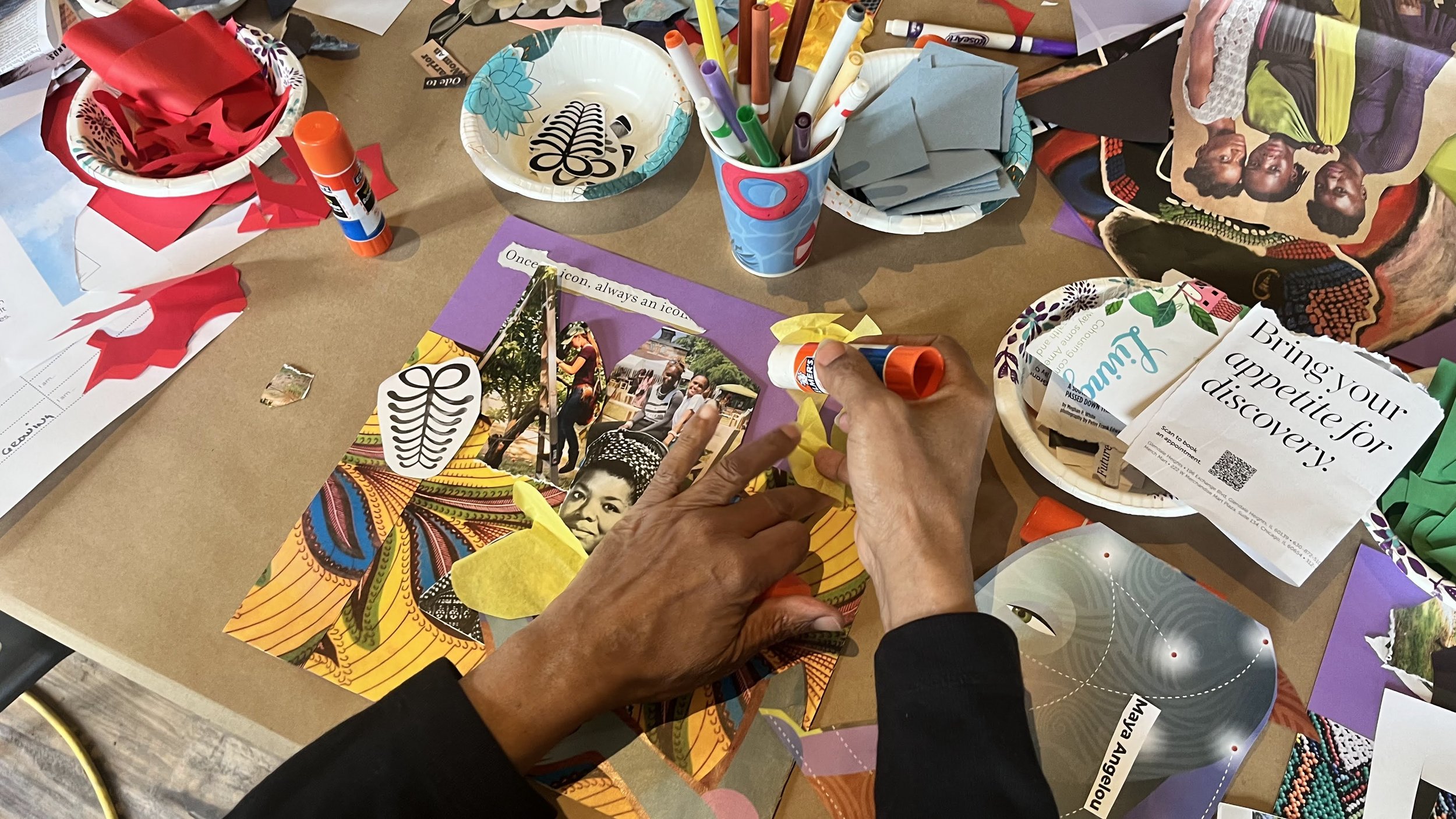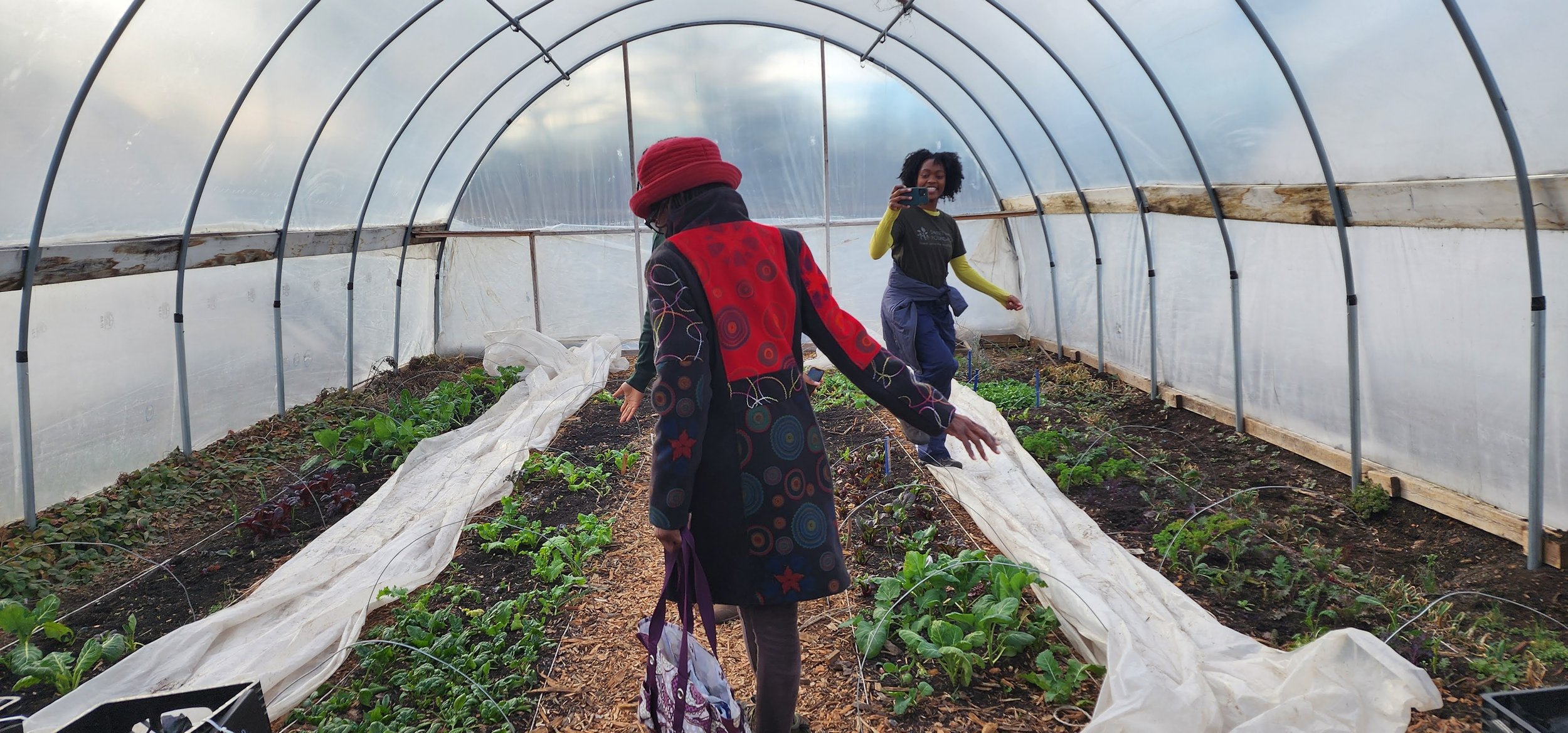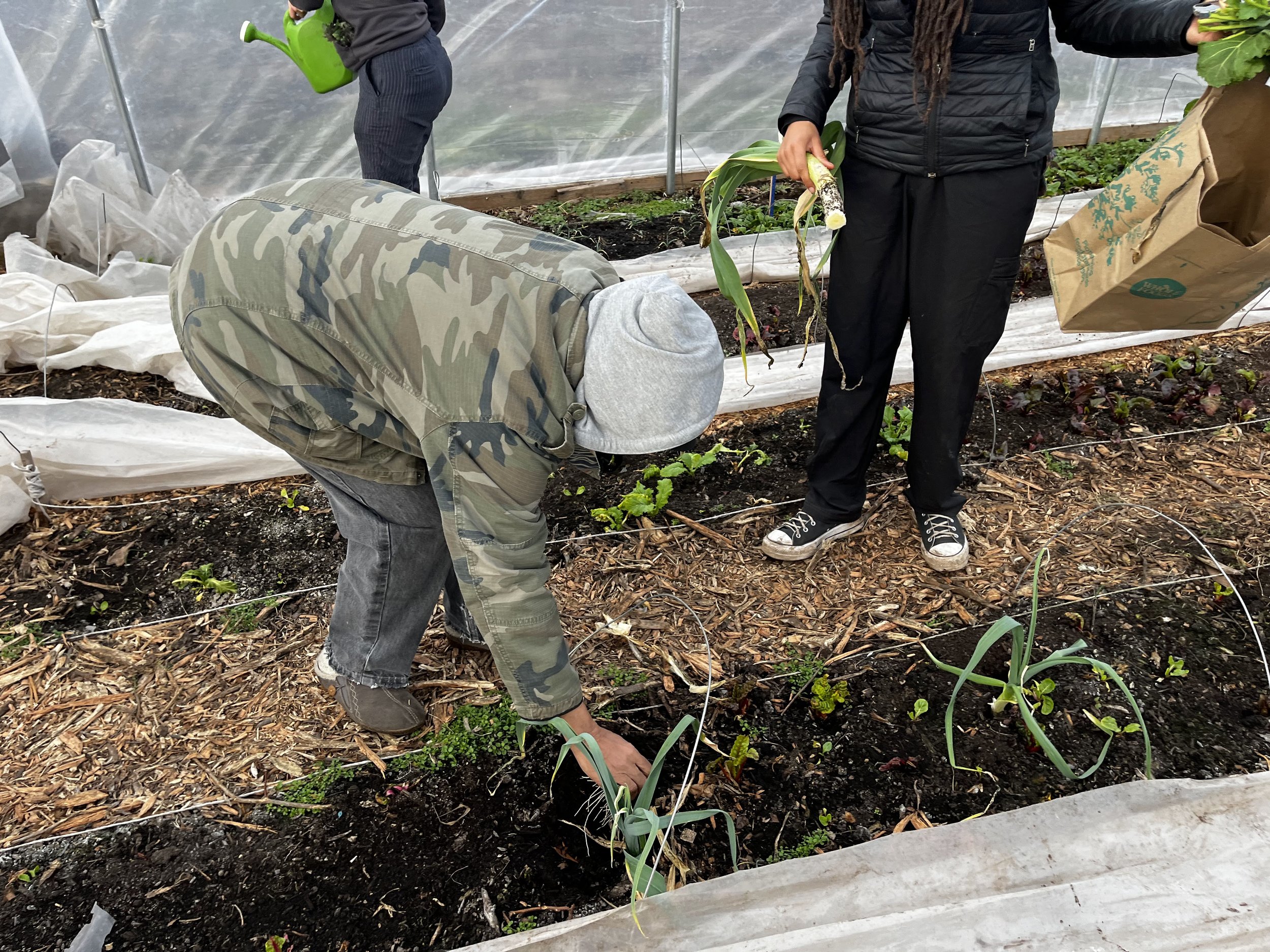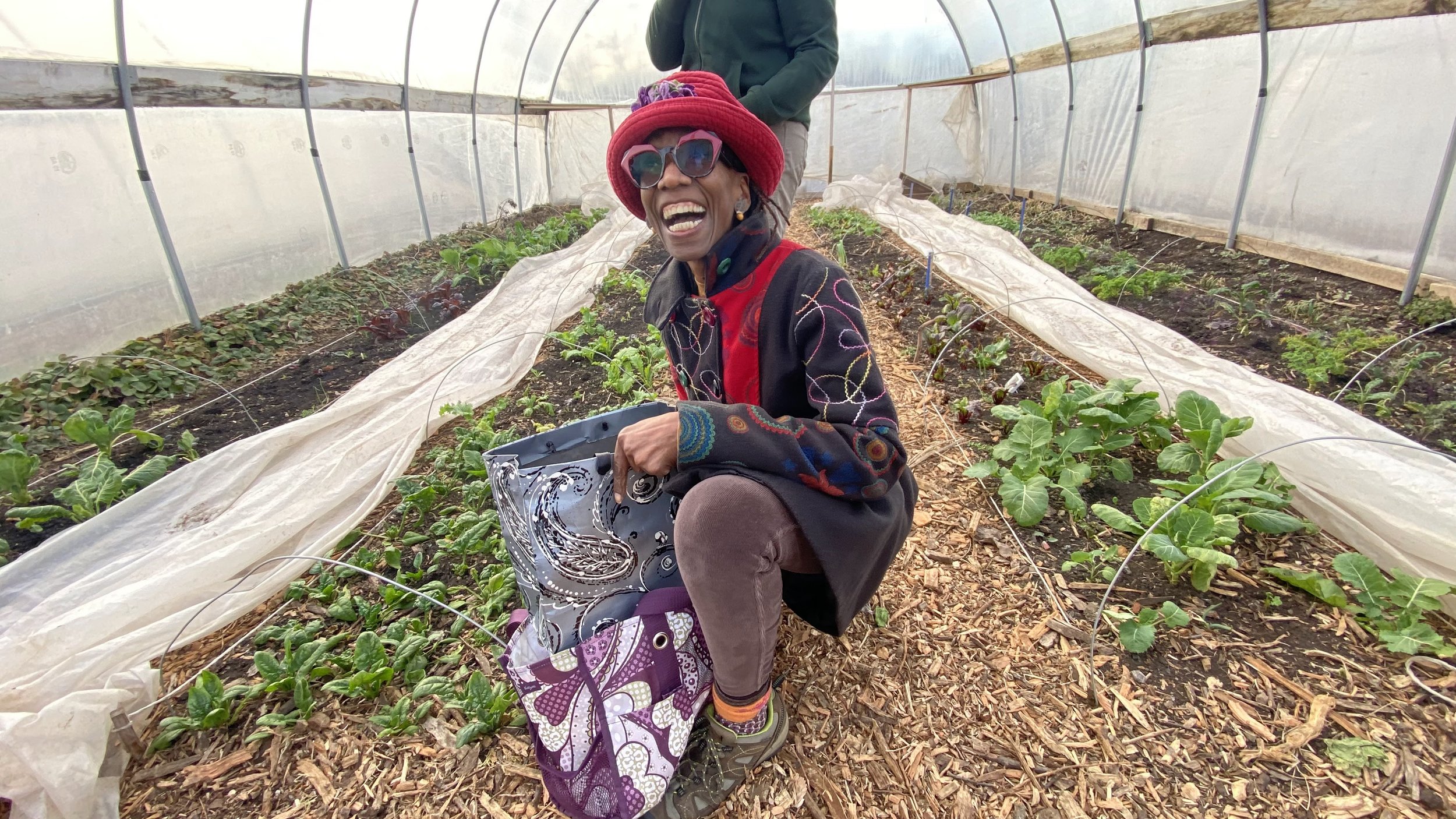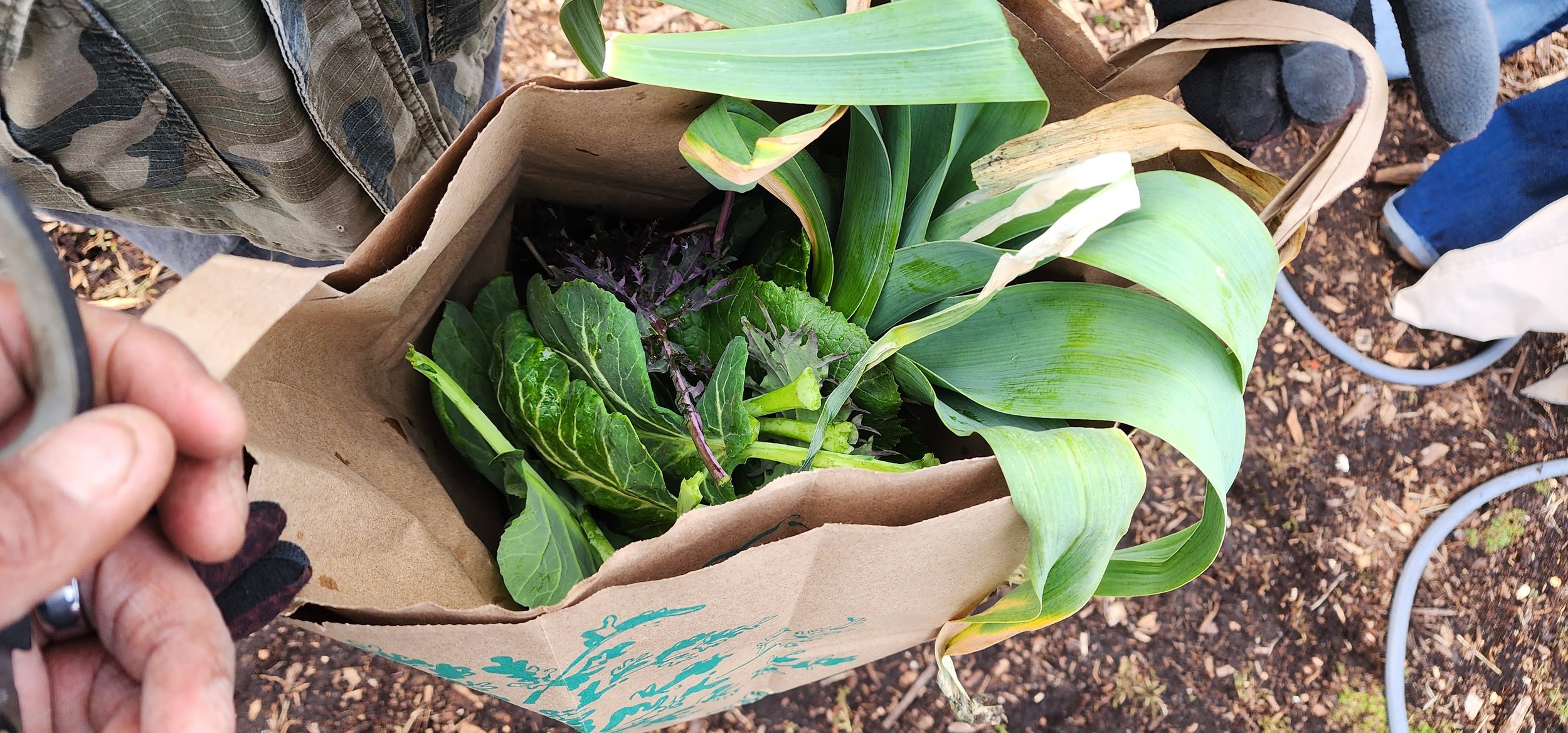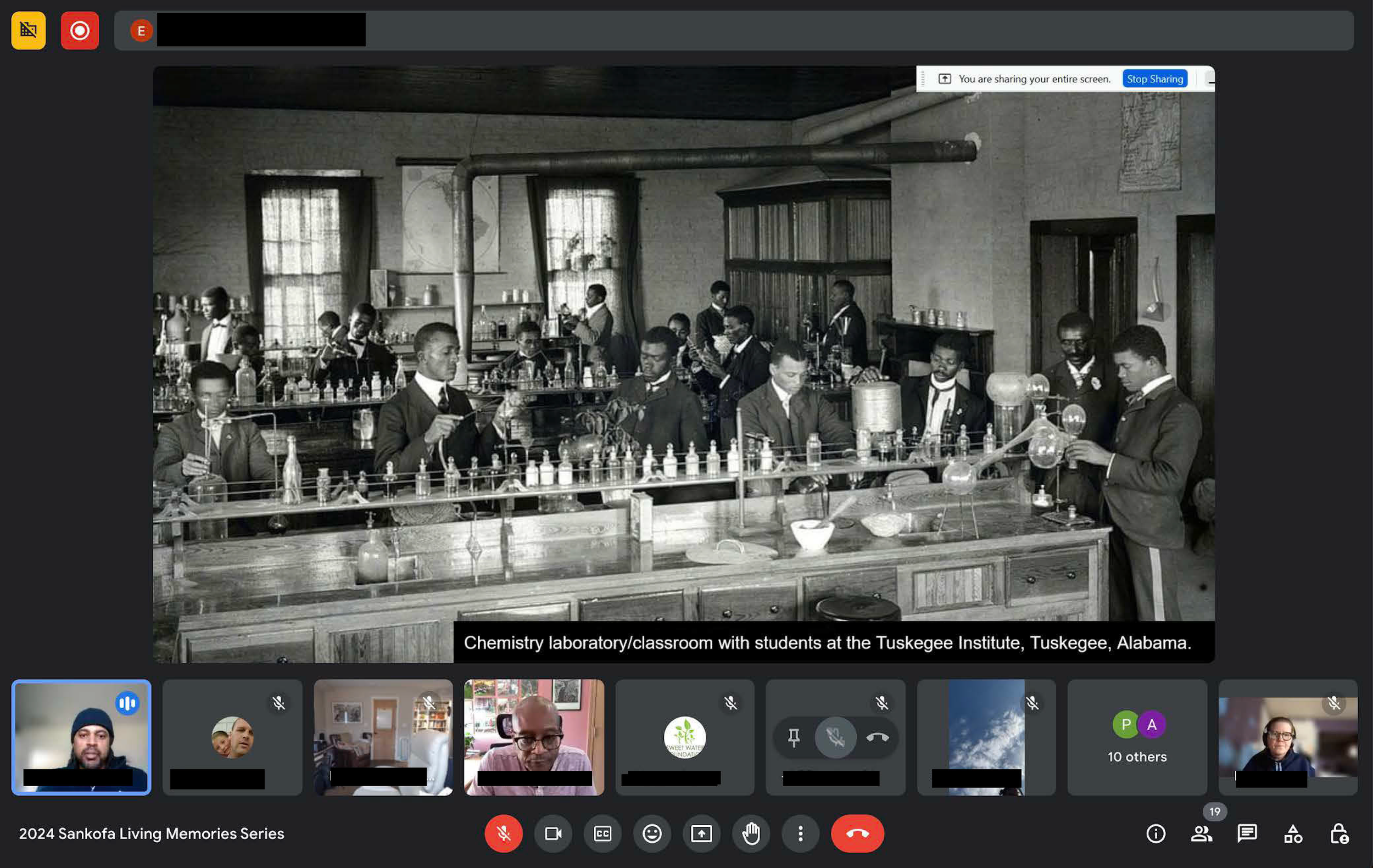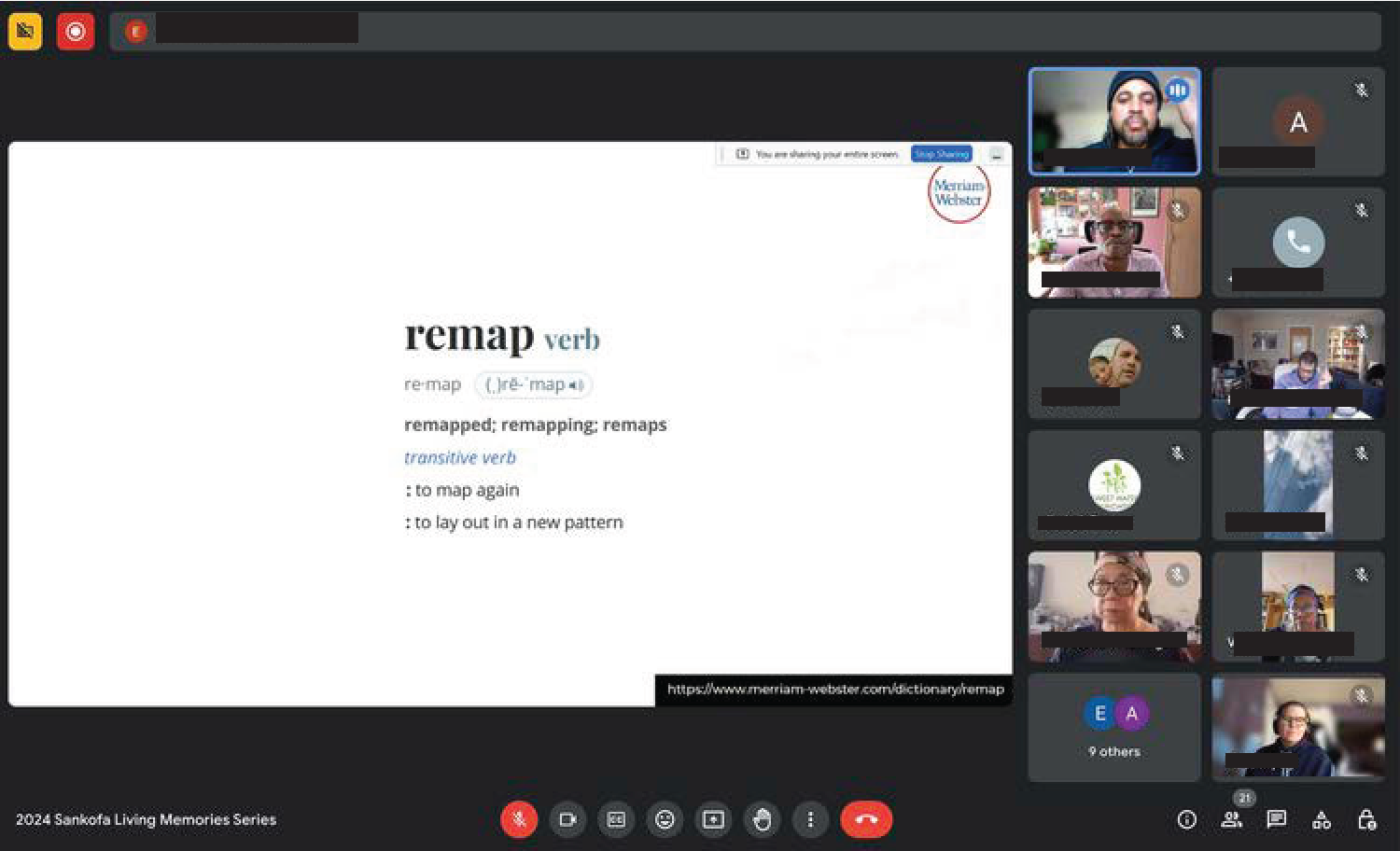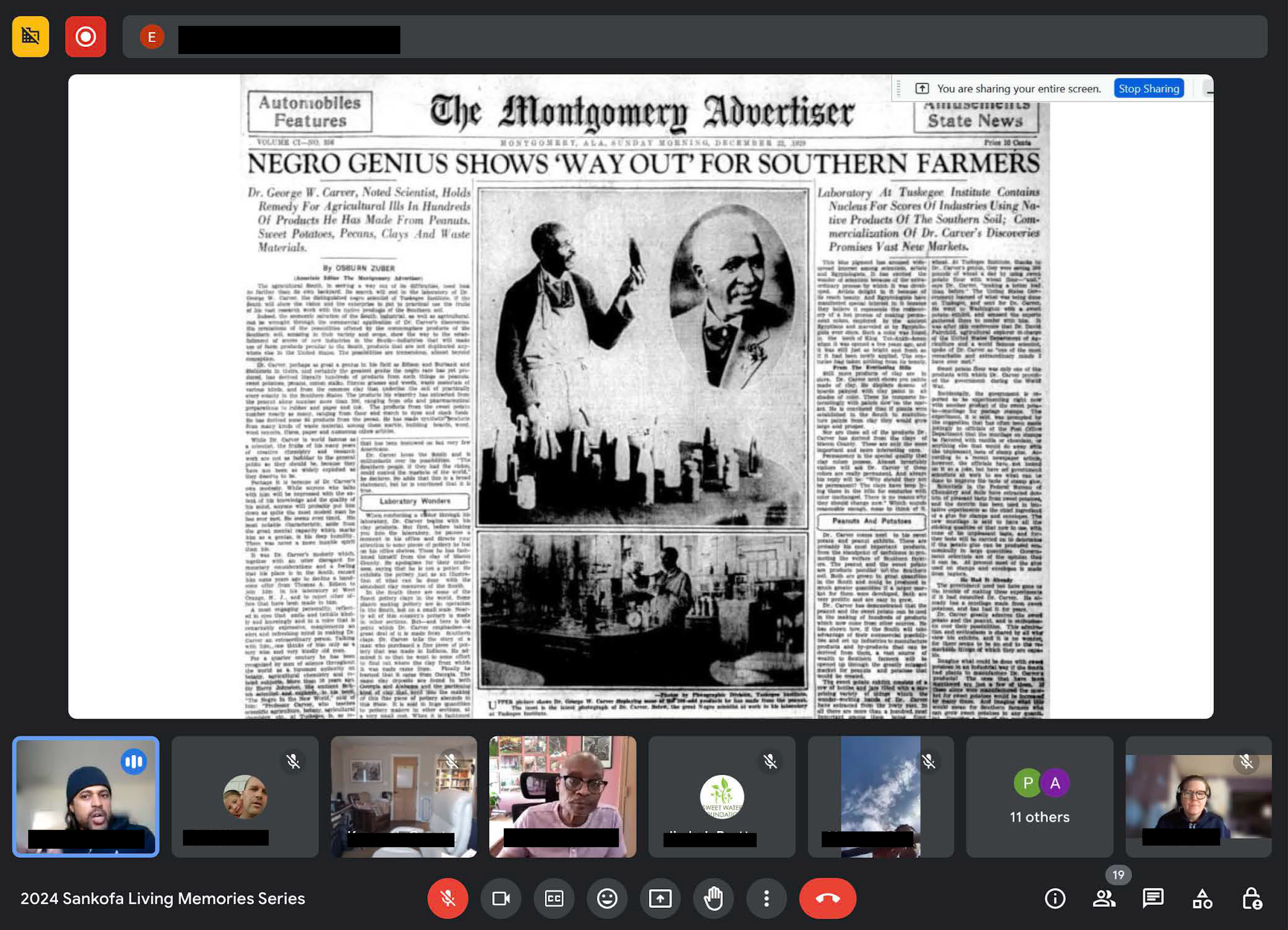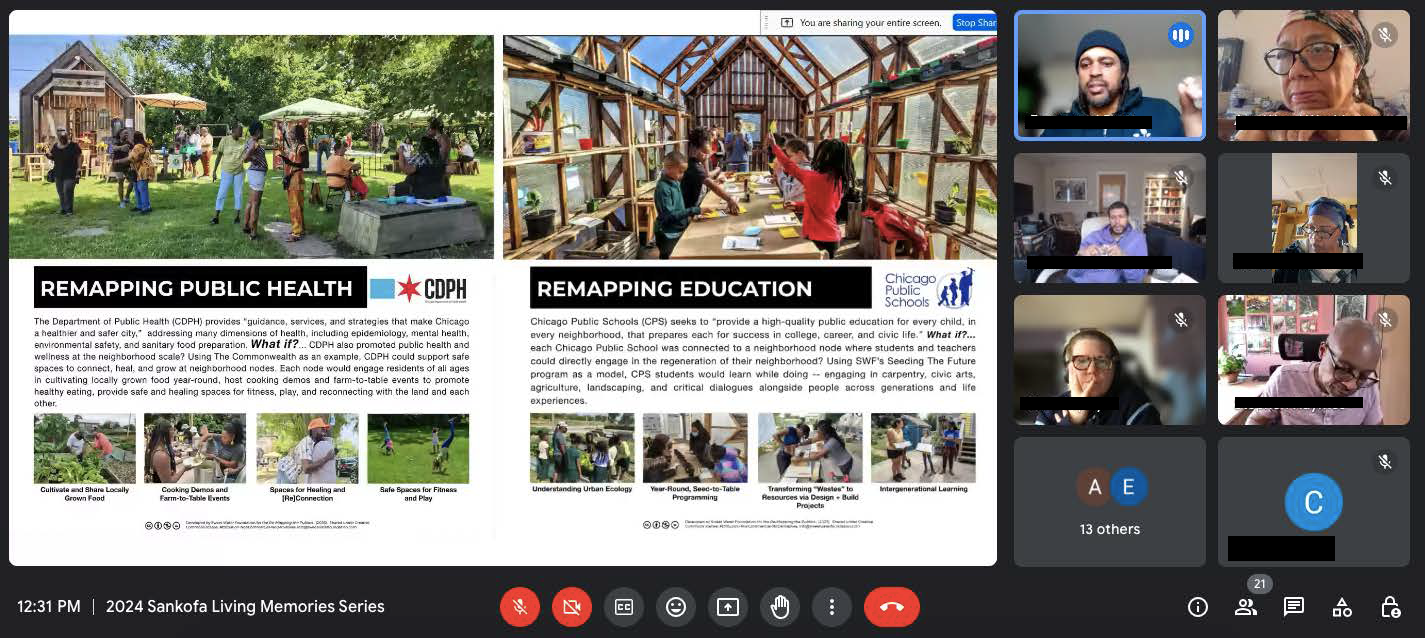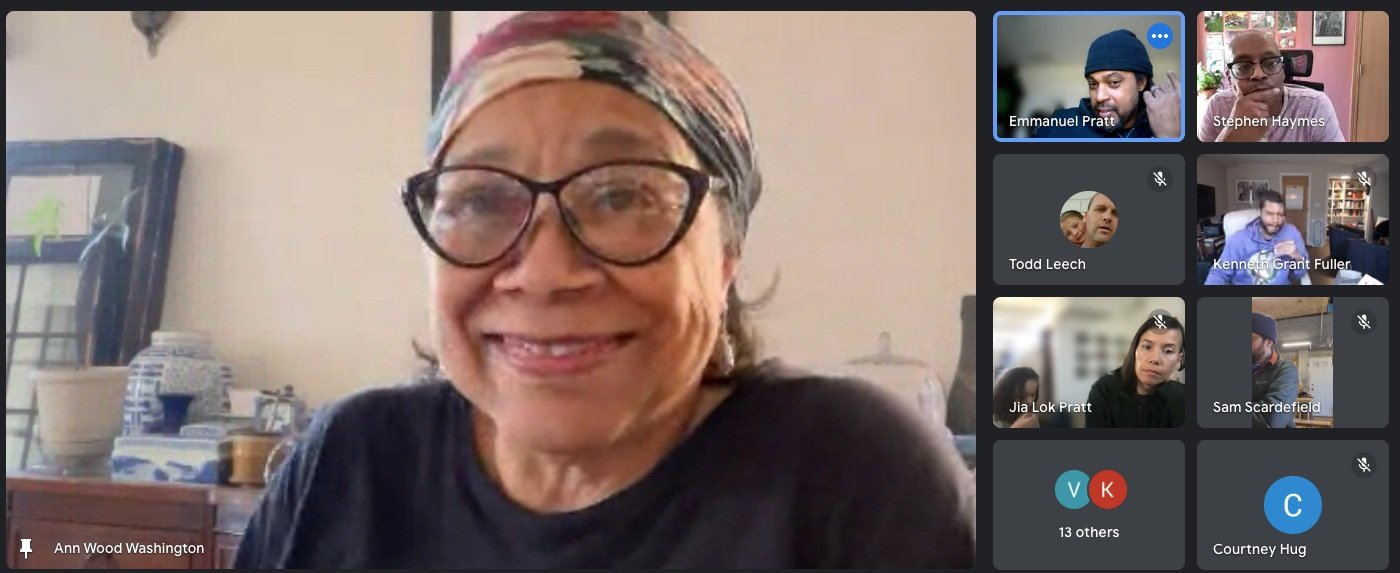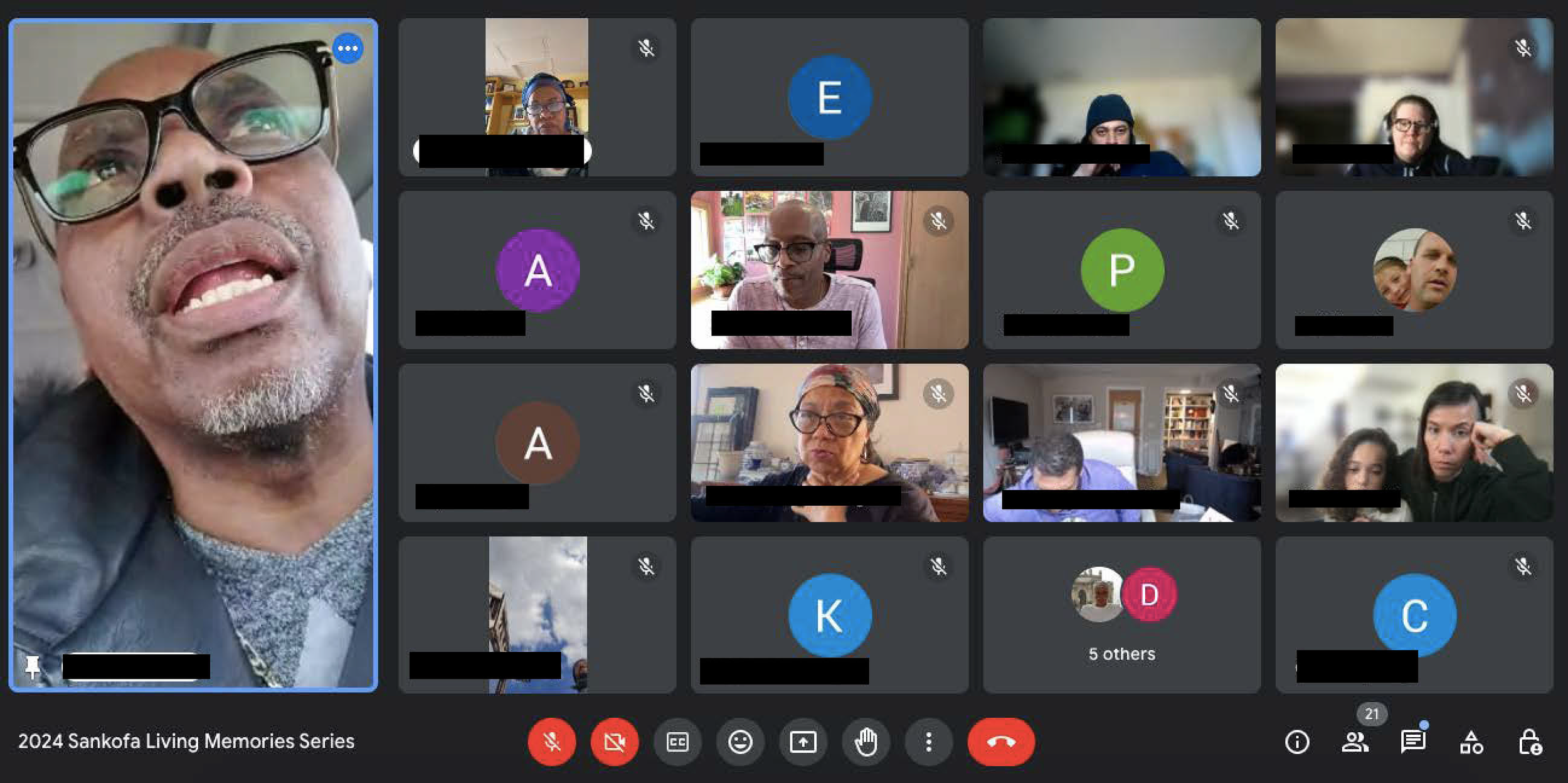2024 Sankofa Living Memories Series Recap
This February, Sweet Water Foundation hosted its fourth annual Sankofa Living Memories Series. The Sankofa Living Memories Series embraces the practice of Sankofa, reaching back to the knowledge and wisdom of the past and bringing it into the present in order to build a more radical and imaginative future. Similar to previous years, the series featured three sessions that focused on [Re]Membering, [Re]Generation, and [Re]Mediation. Read more about this year’s three-part Sankofa series.
[Re]Membering | Friday, February 9
On Friday, February 9, the SWF team shared a presentation that celebrated SWF’s practice of growing year-round and specifically focused on the team’s team's experience growing during SWF’s three-week winter break and through Chicago’s coldest stretch of winter weather in 30 years.
In the introduction, SWF’s Executive Director, Emmanuel Pratt, shared a quote from Ben Okri:
“Beware of the storytellers who are not fully conscious of the importance of their gifts and who are irresponsible in the application of their art. Some people say when we are born, we are born into stories. I say we are also born from stories.” - Ben Okri
This statement is especially true when it comes to Black History, which has far too often been relegated to the descriptions created by people external to the Black community, thus minimizing our society’s collective knowledge of and appreciation for the lived experience, contributions, and meaning of many people’s life work. The [Re]Membering session re-membered influential African American ancestors such as George Washington Carver, whose life narrative is often summarized as the “Peanut Farmer” rather than being recognized for his expansive body of work, which included creating the roadmap for the Negro Rural Schoolhouse (later renamed the Rosenwald Schools). The session also paid homage to Booker T. Whatley, who is rarely re-membered for the introduction of Community Supported Agriculture (CSA) or as the founder of regenerative agriculture, and Fannie Lou Hamer, whose work starting Freedom Summer and Freedom Coop has been largely unacknowledged. The work we do at Sweet Water Foundation is in re-membrance and reverence of the arc of their stories.
After re-membering, the SWF team shared a presentation [Re]Membering Through Year-Round Growing. The SWF team shared their experience collectively supporting life across SWF’s three hoop houses during the team’s three-week winter break in December and amidst the longest cold snap in 30 years in Chicago that took place in mid-January. For some team members, this was their first year growing food year-round, so the fall and winter have been rich with learning through doing. The team relayed techniques for monitoring and responding not only to the weather but also to the thermodynamics of the hoops and the needs of the crops. They shared how SWF works to stabilize the temperature and humidity inside the hoop houses, their experiences coordinating as a team, the workings of the sensor technology, and the process of creating hyper-local, longitudinal data that is contributing to SWF’s growing knowledge about the routines needed to grow food year-round in Chicago, as the climate continues to shift. The presentation concluded with a photographic culinary journey of how year-round growing inspires the creation of seasonal recipes. When shared with others - from family to friends and neighbors - agriculture and culinary arts contribute to culture, community, and public health.
Immediately after the [Re]Membering session, the SWF community, including local artists in the network, participated in SWF’s annual Sankofa Civic Arts project, which would soon be rolled out to second-grade students at Beasley Academic Center as part of SWF’s Seeding the Future program. SWF team and community members each created a Sankofa Collage in honor of their ancestors, followed by an end-of-day harvest, during which they shared new and old recipes based on seasonal produce.
[Re]Generation | Friday, February 16, 2024
On Friday, February 16, the second Sankofa session picked up where we left off the week before - in SWF’s Hoop Houses with a conversation about the impact of the Great Migration and its connection to cuisine. Emmanuel Pratt shared a quote by Robin D. G. Kelley from his book Freedom Dreams, “...virtually every radical movement failed because the basic power relations they sought to change remained pretty much intact. And yet it is precisely these alternative visions and dreams that inspire new generations to struggle for change.”
“...virtually every radical movement failed because the basic power relations they sought to change remained pretty much intact. And yet it is precisely these alternative visions and dreams that inspire new generations to struggle for change.” -Robin D. G. Kelley
The experience of the Great Migration, a mass relocation process where Black families (more than six million humans) moved from the South to the North of the United States for survival, is shared by Indigenous Peoples who were also forcefully displaced from their homelands, relocating for survival. The shared struggles of migration disrupted the many relationships and connections critical for life – familial and community, and relationships to the land, the ecology, and the food grown – critical elements of culture.
The dynamic relationship between humans, food, seasons, and the land is embodied by the phrase “Eating the Seasons,” coined by the Oneida Nation. They say, “Eating the Seasons is part of who the Oneidas were, who we are, and who we should continue to be: a people in harmony with nature, our bodies, and our health.”
At Sweet Water Foundation, Eating the Seasons is demonstrated through our Wellness Wednesday celebrations throughout the year as a way to connect to ourselves, to nature, and to the greater community through shared labor and meals. The SWF team shared some of their favorite meals and treats prepared throughout the past year, reflecting the seasonal changes in available foods, such as Vegan Collard Greens + Black Eyed Peas, Collard Dumplings, and Padpe Soppu Uppukari (with amaranth). The virtual presentation of these recipes activated our memories and created excitement for the coming growing season.
With our memories and senses activated, the presentation shifted to [Re]Construction House where Knowledge – a SWF Core Team Member, Endiya – a SWF Civic Arts Fellow, and Alesia – a SWF Community member, prepared Vegan Gumbo and Hot Water Cornbread during a live cooking demonstration. As they cooked, they shared stories about their memories of preparing and eating gumbo with family members and family journeys during the Great Migration. Their cooking demonstration offered an alternative, vegan option to the meat and seafood commonly found in gumbo - using mushrooms and jackfruit as replacements.
The cooking demonstration was followed by a conversation with the SWF community about menus and recipes and their importance for memory and healing. As one participant, Victoria Pratt Davis, shared, “Who we are is our memory. The right smell and sound will bring you right back to that moment.” At The Commonwealth, particularly on Wellness Wednesday and during Friday Markets, we are creating spaces for those memories and healing to happen through preparing and sharing meals.
After the presentation, the team gathered in the Think-Do House to enjoy the freshly prepared Vegan Gumbo and Hot Water Cornbread and create a new memory together.
[Re]Mediation | Friday, February 23, 2024
On Friday, February 23, SWF hosted the final 2024 Sankofa Living Memories Series session, which focused on [Re]Mediation—“the act or process of improving or correcting situations.” Remediation is often associated with soil contamination, but it also involves improving/correcting individual actions and behaviors; relationships with friends, families, and our communities; connection to our history; and societal paradigms.
SWF Executive Director, Emmanuel Pratt, shared the story of George Washington Carver - an important historical figure whose story is often limited to “The Peanut Guy.” He highlighted Carver’s agricultural innovations developed while he was the Agricultural Director at the school that is now called Tuskegee University. In 1921, Carter was invited to present his work to the United States Congress, where he shared the importance of the production of peanuts and sweet potatoes for the country, showing the possibilities by sharing a list of 300 derivative peanut products he had been collecting.
In addition to Carter’s agricultural and botanical work, in 1915, he created a vision and blueprint for the Negro Rural Schoolhouse, designed to be modular, dynamic, regenerative nodes in the rural south that were community-driven and built. More than 4,977 schoolhouses were built, following Carter's vision. Over 650,000 learners were engaged over time through the schoolhouses, creating regenerative networks of public learning, knowledge, and action across the South, during a period when states restricted access to public education based on a person’s skin color.
This history is often unknown or overlooked, in part because the Rural Schoolhouses were re-mapped as the “Rosenwald Schools,” named for the financial support of Julius Rosenwald (founder of Sears). The change in the naming of the schools contributed to the forced amnesia of the origin and possibilities of the Negro Rural Schoolhouses and their connection to George Washington Carver.
Sweet Water Foundation’s site, The Commonwealth, lies within the arc of and in reverence to the Negro Rural Schoolhouses envisioned and designed by George Washington Carver and Booker T. Washington. The Commonwealth is rooted in community, and every space and structure within it integrates learning and doing. Like plants, where new life emerges from new nodes, The Commonwealth is a neighborhood node where civic art, public education, public health, public space, and public streets intersect. SWF’s practice of Regenerative Neighborhood Development recognizes that neighborhood development is human development and understands that healthy, intergenerational communities cannot be planned or developed, they must be cultivated organically over time.
Following the presentation, the audience engaged in a rich dialogue about [Re]Mediation, reconceptualizing our place in time by [re]membering histories like that of George Washington Carver. If we practice Sankofa, going back to fetch what has already been created, like the Negro Rural Schoolhouse, we need only to [re]member, reflect, and marry the past with solutions and technology created by young people today. Spaces of community, learning, and ways of honoring and being responsible for the urban ecology, like The Commonwealth, could exist in all cities. These spaces are only possible if we know how to receive that knowledge and put it into action.
In closing, attendees reflected on the need to reconceptualize our place in time, across millennia. To retain all of the knowledge of our ancestors, we have to go back and make a personal investment to rebuild those places in our minds that have been collectively and selectively forgotten.
GRATITUDE to all who participated in the 2024 Sankofa Living Memories Series! Each of the sessions is recorded and available to the SWF community and Values-Based Partner network. Contact info@sweetwaterfoundation.com to access the recordings.

